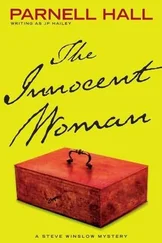When he read this for the first time in 1948, lying on the chaise longue in his office, he felt that it was addressed to him personally, that it was a plea for his help, and he hoped that he would be able to help her, psychologically and politically as well as practically. That, he now understands, was naïve.
And what would it mean in practice anyway?
A lot of talk. He did not tell her that he had read her journal. Instead he used his own life as an example. He told her that his father had been a kulak. (Very few people knew this – only those who had known him since his school-days.) Psychology was not necessarily hereditary. He told her a story he had told no one else. In 1920 – or was it 1921? – one afternoon in September, he and his father had dug a pit in a spinney a few versts from the village. A pit for a hiding place. It was narrow at the top and wider further down, like a jug, and they dried the earth with smoke from smouldering straw. To dig the pit and dry it took two whole days. Then they lowered sacks of grain and potatoes in, laid more straw on top and plugged the entrance with wet, sticky soil. Though he did not understand exactly why they were doing this – he was only eight years old – he felt very proud of his father. It was obvious from his satisfied smile that he – they! – had outsmarted someone. Even Ivan did not know about that. At the time, he told her, he had thought that his life would be more or less identical to his father’s. Everyone had it in them to escape the past. He himself was proof of it. And since it was possible, it was also necessary. Not that it was easy.
He told her the story of Zinaida Denisevskaya. She was one of the teachers at the school in Basmanovo where he went until he left for Sverdlovsk in 1924. Later, she also moved to Sverdlovsk, and worked first in the city library, and then as a scientist at an experimental poultry farm in the suburbs. She was, he said, a typical product of the pre-Revolutionary provincial intelligentsia. Unlike the other teacher at the Basmanovo school, Yevdokimov, she was not a Communist. At first she sympathised with the Revolution as a liberal, but soon she found that the Bolshevik state offended her petit bourgeois sensibilities – her father had been the headmaster of a private girls’ school. The pupils sensed the tension between herself and Yevdokimov on this point. She was physically frail but she had a strong will and she did not want him to teach them to be little Bolsheviks. She wanted to make them in her own image – that is, the image of the bourgeois liberal, something out of Chekhov, the worried doctor, the conscience-stricken schoolteacher. To Aleksandr, she always seemed sad – a small woman in a straw hat, with a sharp face, and a sharp tongue. Then, in the summer of 1924, she got ill. He was not sure what it was – perhaps yellow fever. She stopped teaching. They were told that she was dying, and when he left for Sverdlovsk in September, he thought that she was dead.
He was therefore surprised to see her name on a list in the city morgue years later, in 1937. He found out when the funeral was, and went. It was her. She had survived yellow fever in 1924, and died of leukaemia in 1937. There were only two of them at the funeral, himself and a young female teacher from the Urals Agricultural Institute, where Denisevskaya had been working when she died. He wanted to know what had happened to her since Basmanovo so he went to the institute to look at her possessions. There, he found her diaries, thousands of pages of them.
In 1925, when she moved to Sverdlovsk and found work at the city library, she was very lonely. The main thing I lack is love , she wrote. That is why I have nothing to write about . Eventually, in the late twenties, she moved to the experimental poultry farm, where she lived and worked for most of the rest of her life. Initially she hated it there. She described it as a ‘swamp’, the only ‘island of civilisation’ the home of the director and his wife, the Ferdinandovs, where she had her small room. When these people were transferred to a veterinary institute in Sverdlovsk she wrote that she was losing her only friends, and with them her only pleasures in life, their piano playing and educated talk. However, in time she started to value her younger fellow workers more. She noted their strength of mind, practical orientation and unshakeable optimism. Of her new assistant, Antonina, she said, She is a new type, intensely living, some sort of new woman . And a few months later: She is the true heir to what I valued and loved about the Russian intelligentsia . When she visited the Ferdinandovs in Sverdlovsk, she found that the old warmth was no longer there. I am amazed by their narrow personal outlook on life. If there is no white bread or no white cloth it means life is terrible. The fact that other people’s lives have improved is not taken into account. They sneer at everything, speak ironically about everything. It’s tiresome, this endless hostility towards everything .
She was then in the midst of a love affair, possibly the first and only one of her life. Her lover, Alyosha, was twenty years younger than she was. When it started, in the autumn of 1929, she was forty and he was twenty. In December, he left to study in Moscow, and they wrote letters to each other. Alyosha wrote that he still loved her and that she meant everything to him. To prove it, he said that he was unable to stop masturbating when he thought of her. She found his earthiness off-putting. Her letters to him were patronising. She lectured him on the infinite distance that separated his ‘physiological urges’ from ‘spiritual love’. In these letters, Aleksandr heard the voice of the Denisevskaya he had known himself, the village schoolteacher. This, for instance: For once in your life please write me a sensible, detailed, sincere letter. Only this will decide what form our relations assume in the future. Don’t rush, it would be better to write the letter over several days . In writing to each other, Alyosha used the formal pronoun, she the informal.
When he visited her the next summer, she wrote in her diary that she found him tedious, with nothing interesting to say about Moscow. When he left she wrote, I miss him extremely . She did not see him for more than a year. Then, one day in the summer of 1931, he proposed to her. She turned him down. The way he nods when he says goodbye, his maladroitness, his way of speaking – it makes me want to weep for him, and for me . That was in her diary. To him she wrote, It is very painful to say this but, although you are sincere and pure, you are not as I would like you to be .
In October, he proposed again. They were married. He was by then a party official and often away. She wrote him long letters. I am older than you and therefore more demanding in love than you are. I want more sincere feelings, more profound joys, more mutual nurturing than the two of us are experiencing … He wrote her short notes and postcards. He doesn’t know how to love , she said. She ended the marriage in 1933. Later, thinking about it, she said that Alyosha was a man of the modern style , and what she wanted from him was therefore historically impossible . From this historical perspective, she saw that she had misunderstood him, that his idiom, which she had thought an obstacle to personal expression and intimacy, was in fact his natural language, the sober and factual language of modern times. She started to see herself, too, in this historical perspective – I have found a new world for me in Marxism – positioned between the obsolete old world and the emerging new one, part of neither. This, she said, explained her lifelong loneliness.
Читать дальше












